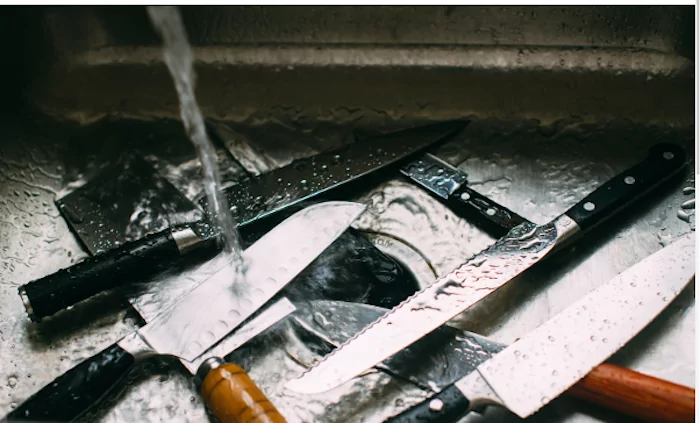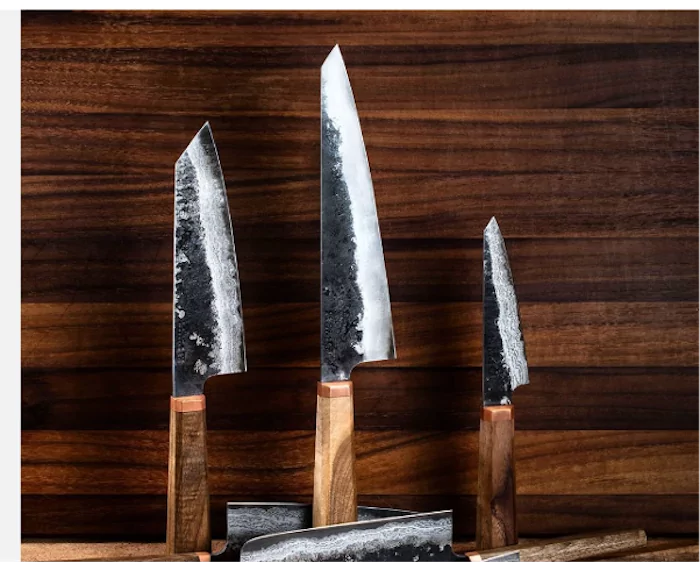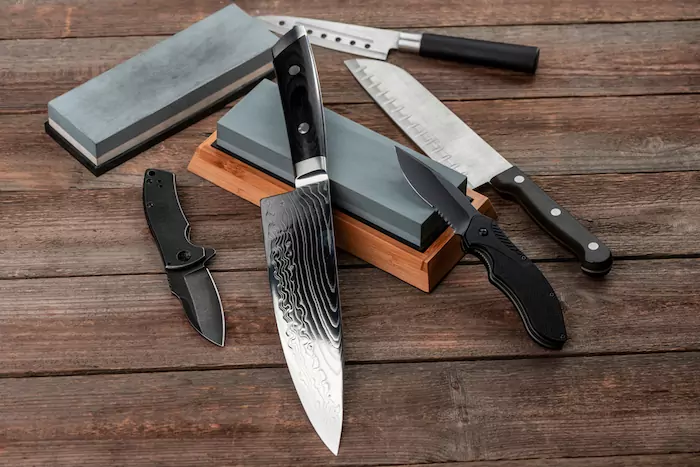A well-sharpened and clean kitchen knife is essential so that cutting can be smooth, and safety is priorities within the kitchen. Cleaning kitchen knives is something that every cook, be it a beginner in their home-cooking journey or a professional, must learn to do in order to maintain their tools.
In this article, we will be looking at some of the best practices that one may need to imbibe when you clean a kitchen knife, washing by hand, or the right way to dry and store them.
What are the Best Ways to Clean a Kitchen Knife?
Importance of Cleaning Kitchen Knives Thoroughly
Hygiene
Kitchen knives come into contact with foods such as raw meats, fruits, vegetable, among others. Cleaning is crucial since it reduces foods residues which can cause bacterial development and also slows down bacteria transmission from one food to the other.
Preventing Odours and Flavours
A cutting knife is expected to be very clean so that the residual food particles can make other foods have an undesirable odour and taste. This does not happen when you have thorough cleaning so that the integrity of your ingredients is maintained.
Maintaining Sharpness
When food particles are allowed to stick on the face of the knife where the cutting edge is, it means that over time the blade will become blunt making cutting very dangerous. Washing knives when used is a crucial activity that helps to increase effectiveness in the cutting of food items and at the same time keep the knives sharp and efficient.
Preventing Corrosion
It is worth mentioning that some types of foods, particularly acidic ones like tomatoes or oranges must not be left on the knives for long because they might initiate the corrosion of knife blades. Some washing and drying of the knives once used should be done in order to reduce the chances of developing a rusty surface hence shortening its life span.
Safety
Sharpening also enables you to use a clean knife rather than having to use an unhygienically dirty knife. This is due to the development of a slipperiness that comes with the food deposits on the blade that may cause cuts or injuries when using the knife or even when handling it.

Best Ways to Clean A Kitchen Knife
Effective cleaning of kitchen knives should always be done to boost their sharpness and durability for use. Here are some of the best ways to clean a kitchen knife:
Handwashing
Sharp knives should not be washed in the dishwasher but rather only washed by hands. To ensure the blade is clean with no trace of soap or water, the blade is washed carefully with warm water and mild dish soap.
Immediate Cleaning
When using a knife, try and wash and clean it immediately after you finish using it. This is because when food is left on the blade to dry up it becomes difficult to wash hence the need to use cuts to help remove it easily.
Use a Sponge or Cloth
One should avoid scratching the blade in any way and hence they should avoid using rough materials when washing the blade and instead, they should use sponge or cloth. However, do not use a hard brush or metal wool to clean the outer layer of the knife as this could be detrimental.
Be Mindful of the Blade Edge
It should be noted that during cleaning one has to be very careful especially when it gets to the thin side of the blade. Cleaning should be at an angle that is always wiping away from the edges.
Dry Thoroughly
When washing knives, it is recommended to do so with warm water, then the knife should be dried with a cloth also to remove watermarks. One should pay special attention to drying the place where the blade is connected to the handle, as there is always some water running through this area.
Store Properly
After washing those knives that have handles that you can hold, you should store the clean, dry knives to protect the blade and avoid accidents; you can store them horizontally in a knife block, hanging on a magnetic strip, or arranged in a knife drawer organizer.
Avoid Soaking
Do not submerge knives in water or have them immersed for a long time in water which is found in a sink. This can lead to corrosion in particular in the case when your knife is made from a metal with high carbon content.
Regular Maintenance
It is also advisable to oil your knife often or put it through honing using honing steel or sharpening stone to ensure it stays sharp. This should be done before or after each use based on how you frequently you might be using the knife.

The Dangers of Unproperly Cleaned Knives
The potential dangers associated with not properly cleaning kitchen knives include the following:
- Bacterial Contamination: Due to continual contact with food actors, the knife surface may accumulate some residue that facilitates the growth of bacteria. This also poses a threat to people due to foods that are likely to cause ailments including salmonella and E. coli.
- Cross-Contamination: Food particles on the knives are likely to pass on germs to other foods, we hence have cross-contamination. This can take place between two groups of foods; food for animals and human foods taking into consideration that it is life-threatening since it leads to outbreaks of food-borne diseases.
- Dulling of Blades: Veggie remnants that may remain stuck within knife blades may lead to blunting of the knife edge and hinder its performance. Blunt knives in particular leave specific tissues of the food thicker and bulky they force you to push harder which can lead to accidents.
- Corrosion: One more group of meals that must be cleaned quickly is the acidic ones – such kinds of meals may lead to corrosion of knife blades. It contorts the blade thus altering its physical properties and strength and this results in the blade cracking at one point during usage.
- Increased Risk of Accidents: One risk of having a knife wet is that the wet liquid may reduce the friction that is on the blade hence making it hard to control and handle, this may lead to more injuries since one is bound to cut themselves as they use it.
Conclusion
Looking at these risks, it is essential to highlight the significance of washing and proper care of kitchen cuts to avoid the spread of bacteria, which leads to sickness, as well as protection from possible accidents while handling the knife set and enhancing the durability of the utensils.

